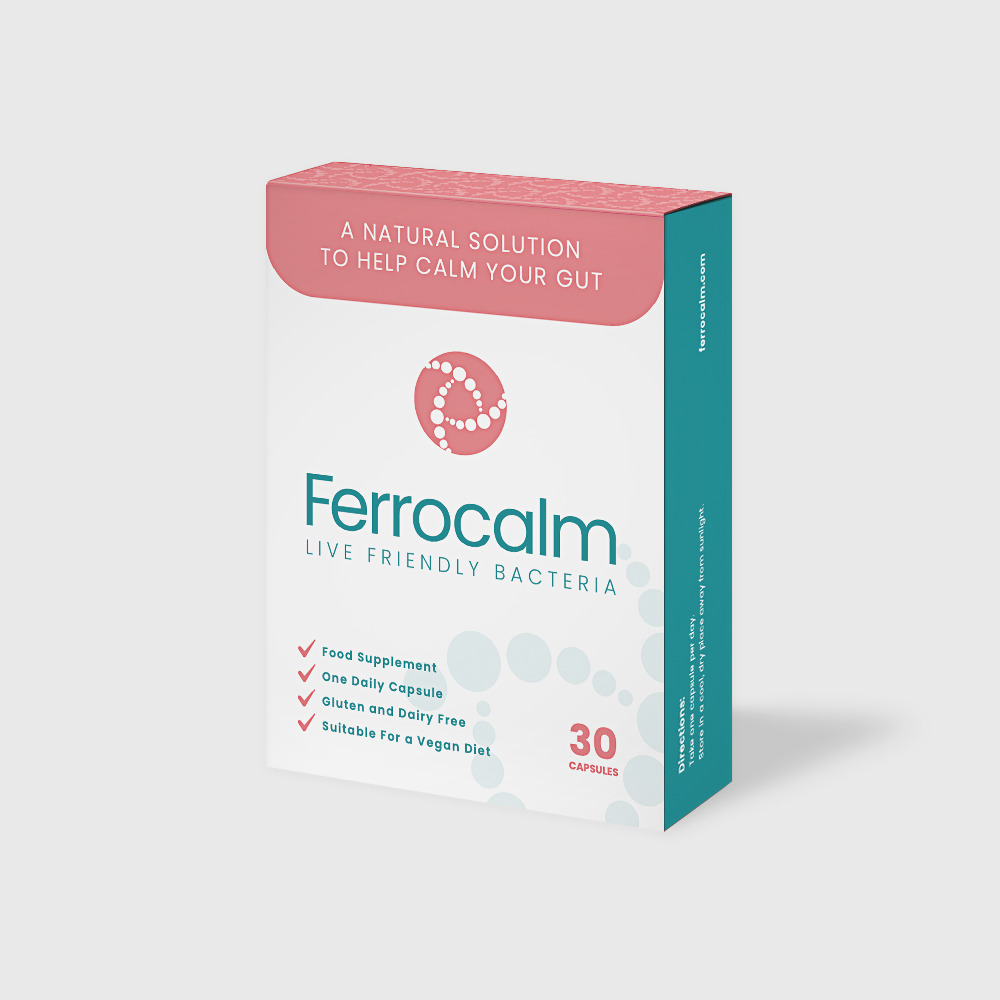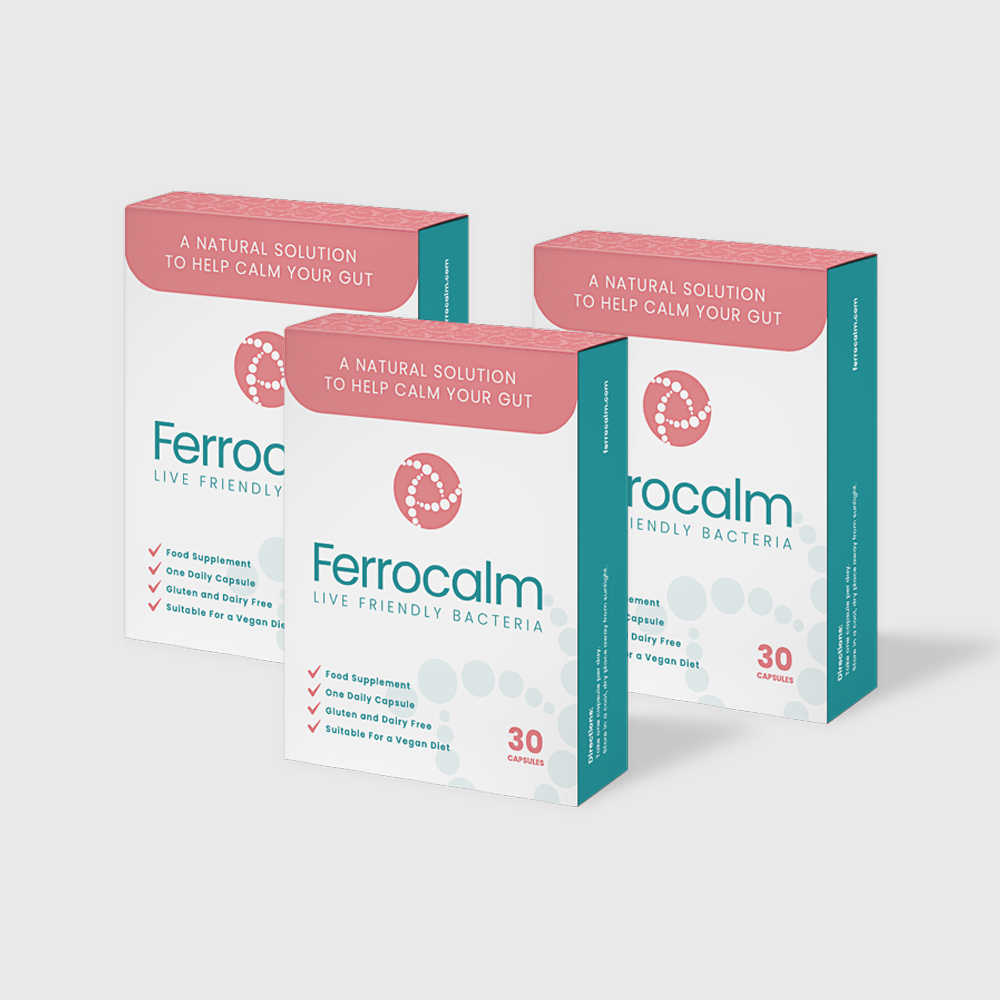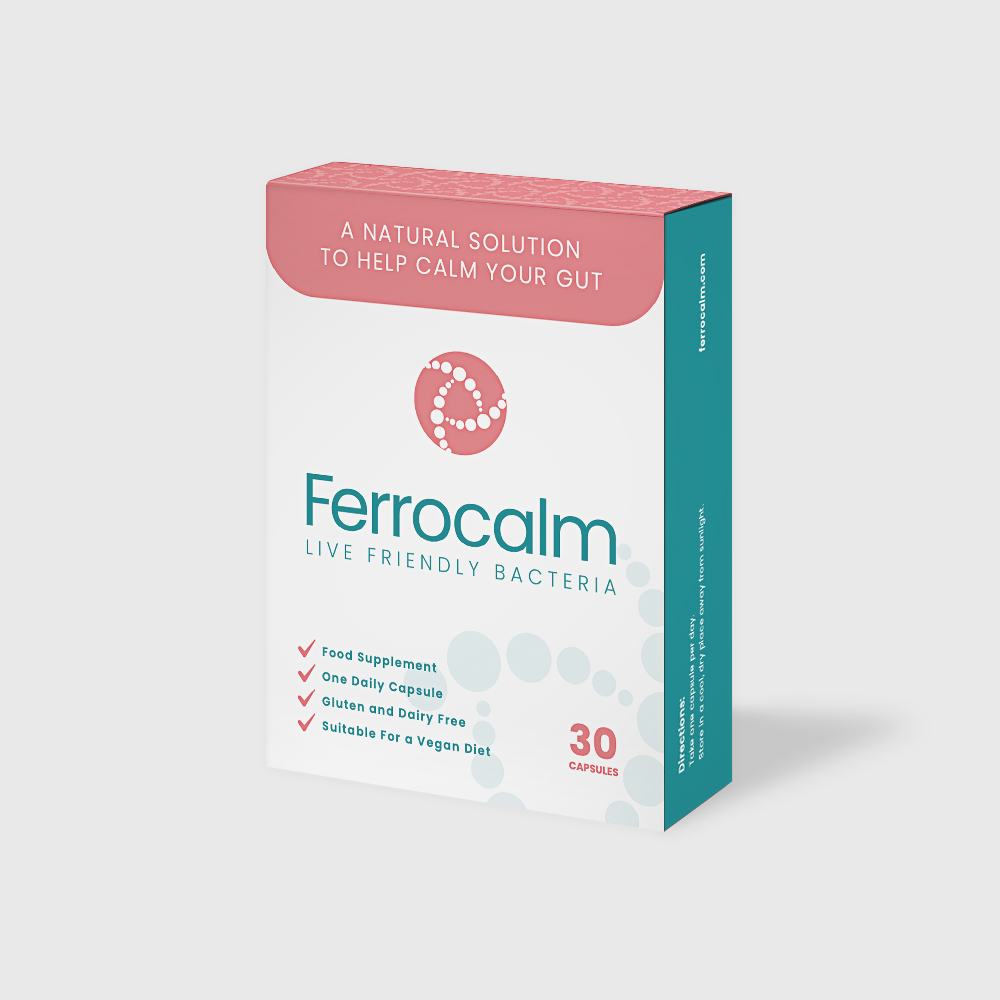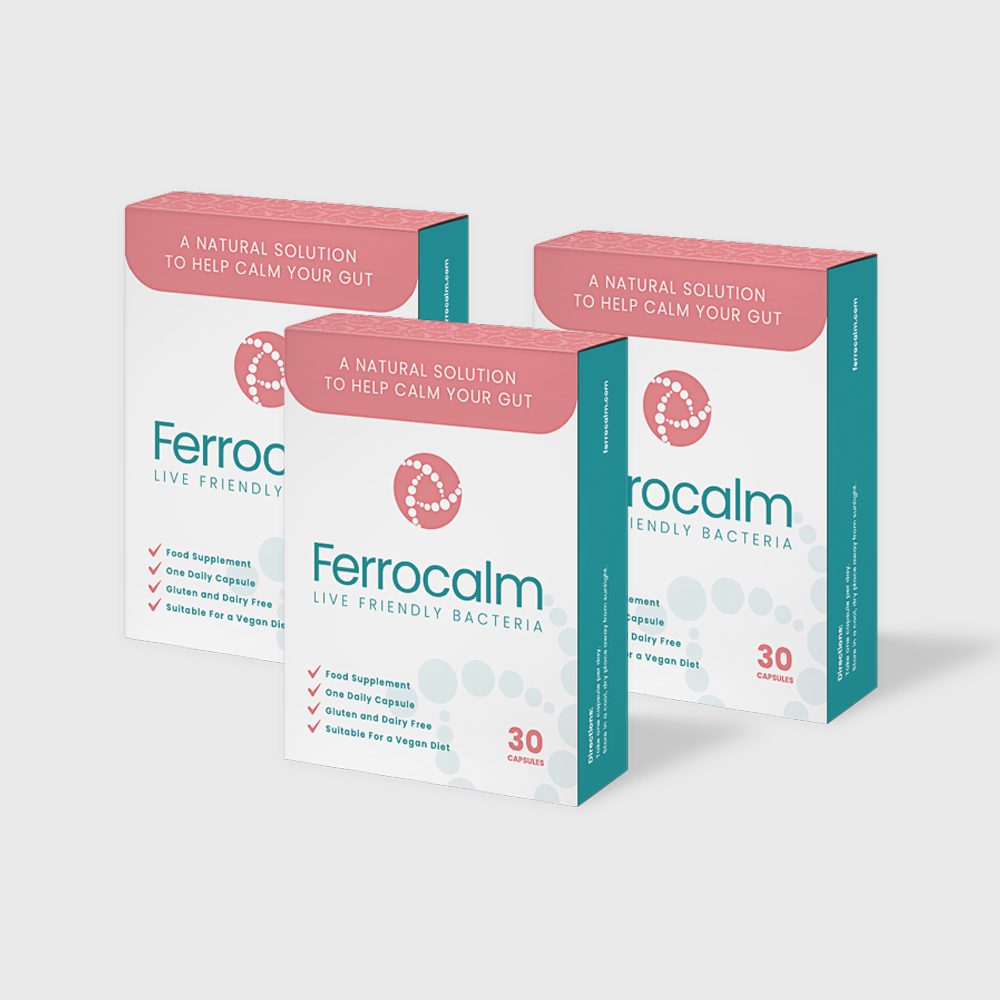Living with IBS is hard enough. But when you add stress into the mix, it often gets worse. On Stress Awareness Day, it is important to recognise how closely the gut and brain are connected, and why treating one without the other rarely brings lasting relief.
The gut-brain axis is not just a buzzword. It is a scientific reality that more and more research is bringing into focus. When we are anxious or under pressure, our digestive system often responds. For those with Irritable Bowel Syndrome (IBS), that means flare-ups can become more frequent, more severe, and more difficult to manage.
Why stress matters so much in IBS
Stress has a direct impact on the digestive system. It can alter gut motility, increase inflammation, change how pain is perceived, and disrupt the gut microbiome. For people with IBS, these changes can worsen bloating, discomfort, irregular bowel habits, and food sensitivities.
According to our recent survey of over 300 Ferrocalm users:
- 68 percent said they often experienced negative feelings such as anxiety, low mood, or depression
- 74 percent reported feeling unsatisfied or very unsatisfied with their health at the start of their journey
- 66 percent said their symptoms regularly got in the way of daily activities
These numbers speak volumes. Stress is not a separate issue from gut health. It is part of it.
After just eight weeks of using Ferrocalm consistently, our survey found:
- Only 36 percent continued to report frequent negative feelings
- 61 percent said they were satisfied or very satisfied with their health
- 70 percent said they were enjoying life again
- 64 percent said their IBS symptoms rarely or never got in the way of their day
These changes are not just physical. They represent a shift in how people feel about themselves, their bodies, and their lives.
IBS does not only affect digestion. It affects confidence, freedom, social life, and mental health. So when the gut starts to settle, everything else begins to shift too.
How the gut and mind influence each other:
The gut and the brain communicate constantly through the vagus nerve, a bi-directional pathway that links the central nervous system with the enteric nervous system in the gut. This communication network is influenced by:
- Hormones and neurotransmitters (like serotonin, which is mostly produced in the gut)
- Immune responses and inflammation
- The gut microbiome and its by-products
Stress can disrupt this communication, making the gut more sensitive and reactive. This is why many people with IBS find their symptoms worsen during high-stress periods like work deadlines, holidays, or emotionally challenging events.
Conversely, poor gut health can also impact mental wellbeing. A disrupted microbiome has been linked to higher levels of anxiety and depression in several studies. When your gut is constantly inflamed, uncomfortable, or unpredictable, it becomes harder to feel mentally stable.
IBS management should not be a one-size-fits-all approach
What works for one person may not work for another. But one thing is becoming increasingly clear: supporting both the gut and the mind is more effective than treating either in isolation.
That is why we love seeing people combine Ferrocalm with other mind-supporting tools, such as:
- Nerva: A gut-directed hypnotherapy app designed specifically for IBS. It helps retrain the gut-brain connection and reduce flare-ups triggered by stress. It is rooted in science and offers a non-invasive way to calm the nervous system.
- Clementine App: Originally created to help women with anxiety and confidence, Clementine now also supports people managing chronic health conditions. Their guided meditations and mindset coaching can help ease stress levels and support mental resilience.
Why Ferrocalm focuses on flare-ups
Most probiotics are not built to survive during IBS flare-ups. Inflammation in the gut can destroy the live cultures before they get a chance to help. Ferrocalm is different. It uses a strain that is clinically tested to remain active during periods of inflammation, so it works when you actually need it most.
This means it can support the gut while other tools help calm the mind. The result is a more balanced, sustainable approach to managing IBS.
You do not have to choose one or the other
There is often a feeling that you have to pick one route: either supplements or therapy, diet or meditation, science or mindset. The truth is, they work best together.
Ferrocalm is not here to replace emotional support, counselling, or mindfulness tools. It is here to complement them. To give your gut the physical support it needs so your mind has space to heal too.
On Stress Awareness Day, we want to encourage a more holistic approach to IBS. One that recognises you are not just a gut. You are a person with a full, complex life, who deserves to feel good in body and mind.
Key takeaways
- Stress is a major IBS trigger that deserves serious attention
- The gut and brain are in constant communication, influencing each other
- IBS symptoms can dramatically impact quality of life, including mood and focus
- Ferrocalm users saw significant improvements in physical and mental wellbeing within 8 weeks
- Combining gut support (like Ferrocalm) with mental health tools (like Nerva and Clementine) can lead to more sustainable relief
- Managing IBS should support the whole person, not just the symptoms
If you are living with IBS and feel stuck in a cycle of symptoms and stress, know this: support is out there. And it does not have to be one thing.
Start with one small change, one daily capsule, one guided meditation, one conscious breath. You might be surprised at what follows.











